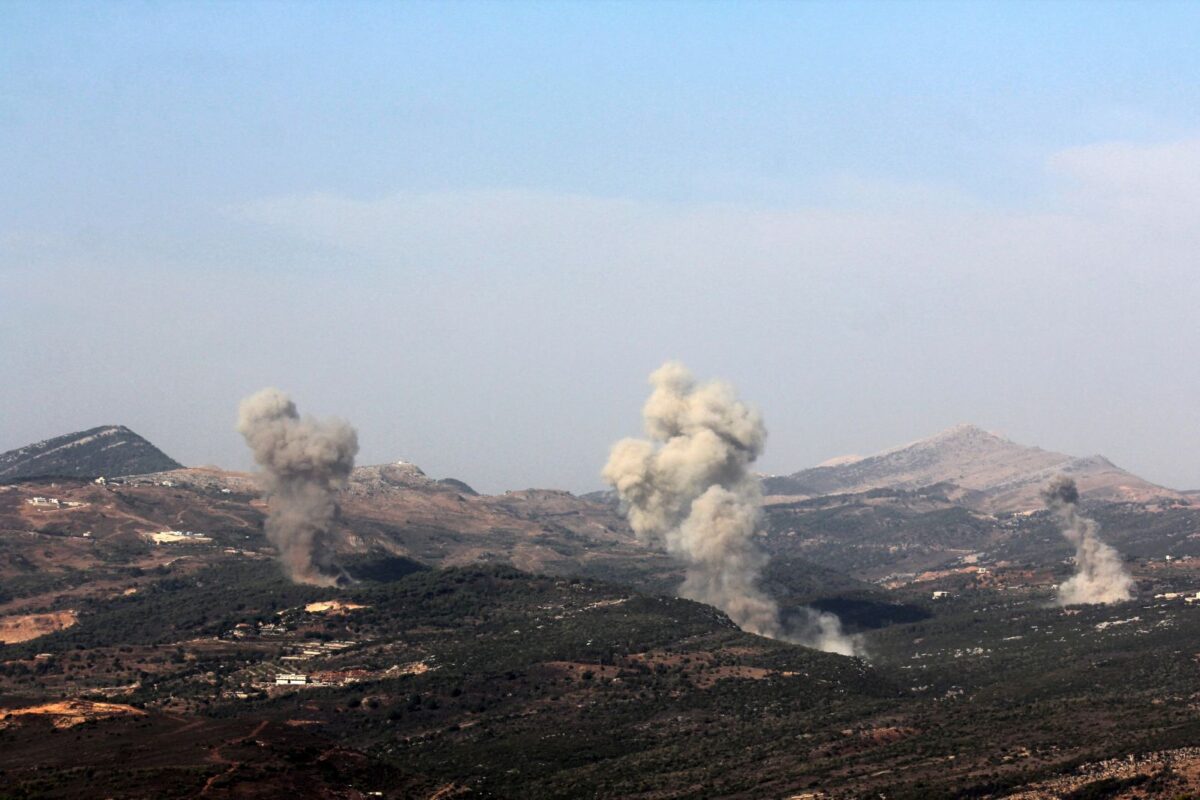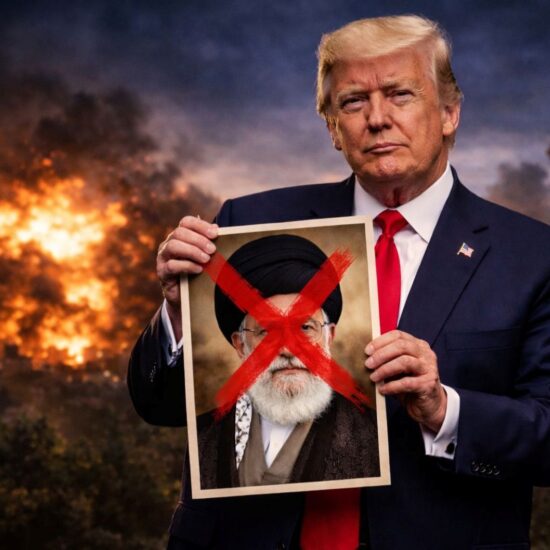
As Lebanon faces growing pressures, from Israeli security concerns to international calls for disarmament and peace talks, the country’s political system is showing deep fragility
On Thursday morning, southern Lebanon was once again shaken by the sound of Israeli warplanes. Within hours, airstrikes tore through the villages of Tayr Debba, At-Taybah, and Ayta al-Jabal—communities lying south of the Litani River. The Israeli military had issued evacuation warnings shortly before the attacks, claiming they were targeting Hezbollah’s “military infrastructure.” But on the ground, panic swept through civilian neighborhoods as families fled their homes, fearing the worst.
The strikes left one person dead and eight others wounded, according to local reports, in an area between Abbasiya and Toura in the Tyre district. Israeli army spokesman Avichai Adraee later said those killed and injured were “workers employed within Hezbollah infrastructure used to produce equipment for the reconstruction of facilities targeted and destroyed during the war.”
This assault marks yet another violation of the fragile ceasefire that has technically been in place since November 27, 2024. In that time, Israel has carried out dozens of attacks deep inside Lebanese territory. Lebanese President Joseph Aoun condemned the strikes as a “full-fledged crime under international humanitarian law,” accusing Israel of deliberately terrorizing and displacing civilians.
One of the strikes occurred near Lebanese military bases in Kfardounine, where the army refused to evacuate the Martyr Mohammed Farhat barracks, located just 200 meters from the threatened building, despite UNIFIL’s efforts to persuade them to leave.
Thursday’s escalation also came just hours after Hezbollah publicly rejected renewed calls from the United States and Egypt for Lebanon to open direct political negotiations with Israel, according to circulating rumours. In a statement, the group said such talks “would not serve the national interest,” reaffirming its “legitimate right to defend itself against an enemy that imposes war on our country.”
Taken together, Israel’s latest strikes appear to signal a dangerous return to open confrontation, a deliberate escalation following Hezbollah’s defiant refusal to engage in direct talks.
In Lebanon
World Bank Visit: A World Bank delegation visited Lebanon from November 5 to 9, 2025, meeting with top officials and private sector representatives to assess economic challenges and review ongoing projects. The team toured initiatives in the Bekaa and South under the Lebanon Emergency Assistance Program (LEAP) and emphasized reforms and stronger governance to support recovery.
Rising Targeted Strikes: Israel has intensified its attacks in southern Lebanon, increasingly targeting individuals. Two brothers were killed in an air raid between Ain Ata and Shebaa, while a drone strike near Salah Ghandour Hospital in Bint Jbeil injured seven. Hours later, another drone hit a car in Baraachit, killing one and wounding four.
Aoun Meets U.S. Treasury Delegation: President Joseph Aoun reaffirmed Lebanon’s strict measures against money laundering and terrorism financing during a meeting with a U.S. Treasury delegation led by Dr. Sebastian Gorka at Baabda Palace. He highlighted recent banking reforms and a forthcoming fiscal gap law aimed at stabilizing the economy, alongside ongoing coordination with the IMF. Aoun also stressed the army’s continued efforts to pursue terrorist cells and called for international pressure on Israel to halt its attacks and fully implement Resolution 1701.
Salam Chairs World Bank Meeting: Prime Minister Nawaf Salam chaired a working session at the Grand Serail with a World Bank delegation led by Executive Director Abdulaziz Al Mulla. The meeting gathered key Lebanese ministers from finance, energy, social affairs, economy, environment, and other sectors, along with the head of the Council for Development and Reconstruction. Following the talks, Finance Minister Yassine Jaber and World Bank Executive Director Arnaud Fernand Buisse, representing France, are set to hold a joint press conference broadcast on Tele Liban.
US Pressure on Lebanon: Diplomatic sources say Lebanon faces unprecedented U.S. pressure on two fronts: to join talks with Israel despite Israel’s ceasefire violations, and to tighten economic and diplomatic sanctions on Hezbollah, its allies, and the Lebanese state. Reports suggest many individuals and institutions could face new sanctions soon, coordinated with U.S. diplomatic efforts, including a recent high-level meeting between President Aoun and a U.S. Treasury delegation.
In The Region
Historic US Visit: Syria’s President Ahmed al-Sharaa will meet U.S. President Donald Trump at the White House on Monday, days after being removed from the U.S. sanctions list. Al-Sharaa, the first Syrian leader to visit the White House since 1946, aims to secure international aid and may join the U.S.-led coalition against ISIS, as Syria seeks to rebuild.
Jordan Sends Aid: The Jordan Hashemite Charity Organization dispatched 16 trucks of aid to Syria on Sunday, including prefabricated homes, medical supplies, and medicines. Coordinated with Jordan’s Foreign Ministry and Armed Forces, the convoy will be distributed by the Syrian Crescent in Suwayda and Daraa. The JHCO partnered with the Helping Hand Foundation, MedGlobal, and Hikma Pharmaceuticals, following similar aid deliveries with Qatar in September.
The Israeli Horror: Shady Abu Sedo, a 35-year-old Palestinian photojournalist, described losing all sense of time during his detention in Israeli jails following his arrest in March 2024, amid the Gaza war. Held under Israel’s “unlawful combatants” law at Sde Teiman prison, he spent 100 days blindfolded, handcuffed, and unable to speak. Released to Gaza on October 13 under a U.S.-brokered ceasefire, Abu Sedo recounted severe mistreatment and injuries, calling his experience “torture,” and expressed shock at seeing his children again after months of imprisonment.
Turkey Issues Warrants: Turkey has issued arrest warrants for Israeli Prime Minister Benjamin Netanyahu and senior officials, including Defence Minister Israel Katz, National Security Minister Itamar Ben-Gvir, and Army Chief Lt. Gen. Eyal Zamir, accusing them of “genocide and crimes against humanity” in Gaza. The Istanbul prosecutor’s statement cited attacks on civilian sites, including the Turkish-built Palestinian Friendship Hospital. Israel dismissed the move as a “PR stunt,” with Foreign Minister Gideon Saar condemning it on social media.
Ghannouchi Hunger Strike: Jailed Tunisian opposition leader Rached Ghannouchi, 84, has begun a hunger strike, joining fellow politicians Jawhar Ben Mbarek and Issam Chebbi in protesting what they call their “unjust imprisonment.” Ghannouchi, head of the Ennahda party, said his strike aims to support Ben Mbarek and defend freedoms in Tunisia, where critics accuse President Kais Saied of using the judiciary to suppress opposition.
What We Are Reading
Lebanon Reclaimed: Journalist Valeria Rando writes about the struggle over public and protected spaces in Lebanon, highlighting recent conflicts in Bashura, Jeita, and Amchit. From Roman necropolises paved for parking lots to private parties in Jeita Grotto and illegal villas threatening monk seal habitats, these cases illustrate the tension between privatization, state negligence, and citizens’ right to the city. Rando emphasizes that beyond heritage and environmental concerns, these battles reflect a broader struggle for urban citizenship, participatory rights, and the reclamation of spaces for public use against elite and commercial interests.
Facade Peace or Real Sovereignty? The False Promise of Negotiations: Makram Rabbah, NOW’s managing editor, writes that calls for peace in Lebanon often mask the country’s deeper dysfunction. Announcing negotiations cannot replace a functioning state: true peace requires sovereignty, control over borders, arms, and decision-making. Personal initiatives, like Thomas Barrack’s, risk bypassing state institutions and empowering armed proxies, deepening fragmentation. Rabbah stresses that Lebanon must first restore credibility—through an independent judiciary, merit-based civil administration, and unified security forces—before meaningful talks with Israel or the international community can take place.
When Obedience Becomes Habit: Lebanon’s Political Decay: Ali Salman, researcher at the Grand Serail, writes that Lebanon’s sectarian system has lost its legitimacy. Once a framework of protection and fear, it now survives on habit, exhaustion, and transactional loyalty rather than belief. Citizens obey not out of trust, but necessity, while younger generations quietly reject the system. Electoral shifts, like in Barouk, show obedience is no longer guaranteed, signaling the death of sacred authority. Salman argues that sectarianism will fade as an idea but persist as a habit, with power increasingly transactional, controlled by those who can exploit exhaustion rather than inspire loyalty.








